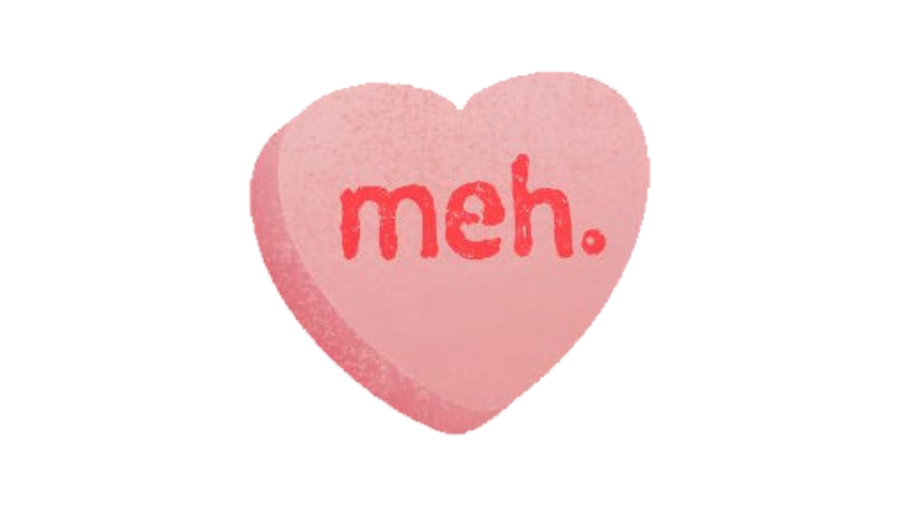Valentine’s Day: romantic or a rip off?
Love it or hate it, one thing is for sure: Valentine’s Day is all about love of the almighty dollar
February 10, 2022
Valentine’s Day has long been known as a holiday invented by greeting card companies, or so we thought.Valentine’s Day can actually be traced back to the Pagan holiday, Lupercalia, which was “a bloody, violent and sexually-charged celebration awash with animal sacrifice, random matchmaking and coupling in the hopes of warding off evil spirits and infertility.” Despite its dark origins, in modern times, Valentine’s Day has been dipped in chocolate, flooded with hearts, drowned in candy flowers and swallowed by love.
So is Valentine’s Day a celebration of love or simply a big sham? The answer is not that simple.
Despite its extreme commercialization, Valentine’s Day continues to be a global holiday that annually celebrates love and admiration. The day allows a time for people to take a break and reflect on their love for others.
As a child of divorce, independent journalist Elizabeth Flock cites over-the-top gestures as “a perfect antidote to the fatigue of a marriage. A way to cut through the mundane.” Valentine’s Day serves as an excuse to sit down, talk and reconnect with your significant other. And even though it is highly commercialized, people still do what they can to show their love, even if it leaves their wallet lighter.
On the other hand, the excessive commercialization of Valentine’s Day has left many with high expectations of Valentine’s Day with their significant other. Whether it be within relationships or from someone searching for a relationship, the portrayal of Valentine’s Day raises hopes exponentially. Surprisingly enough, commercial directors are not tired of the notorious advertisement of a woman entering a room filled with roses. Although many may realize the impracticality of the gesture, they still hope it will happen to them. Additionally, many single individuals also realize the impracticality but also hope and want more, leading to their “settling” in the future.
Furthermore, commercials and the constant pushing of diamonds, chocolate and flowers create a connection between materialistic items and Valentine’s Day. The connection leads to the thought process that the items serve as talismans of love, which is simply not true. This is connected to corporate abuse of individual citizens.
Due to whatever persuades them to buy the customary things, whether it be societal pressure or a desire to express love, businesses benefit greatly from the commercialization of Valentine’s Day. According to the Society of American Florists, Valentine’s Day is “the number one holiday for florists and for floral purchases, and second to Christmas/Chanukah in dollars spent… It is estimated that more than 250 million roses are produced for Valentine’s Day.” Additionally, according to the Daily Meal, “58 million pounds of chocolate are purchased in the seven days leading up to Feb. 14.” The National Retail Federation notes that individuals who celebrate Valentine’s Day, “ plan to spend an average $196.31,” which is up significantly from last year’s spending. Valentine’s Day is a gift-giving holiday, one that expresses love while boosting the economy.
But isn’t this good? Yes and no.
Valentine’s Day is a day when people’s wallets are taken advantage of. Yes, this spending does boost the economy, but people are ripped off by buying gifts every year due to companies skyrocketing prices of must-have Valentine’s Day items, including roses, whose prices basically double around Valentine’s Day. In addition to holiday-based price increases, the prices have gradually increased over the years, such that those planning on buying chocolate this year should plan on spending “$46 on average, which is $20 more than in 2020.”
Money-wise, Valentine’s Day is good for businesses, but bad for individuals.
It’s a question of broken hearts vs. broken banks.
In spite of being a day of love and admiration, Valentine’s Day has a romantic aura, which leaves single people as the odd ones out. An offshoot of Valentine’s Day that has developed is “Galentine’s Day,” which originated in Season 2, Episode 16 of “Parks and Recreation.” Since the airing of the episode 12 years ago, many women have adopted the holiday, which is celebrated on February 13. The day is for celebrating friendships, which allows an opportunity for those not in a romantic relationship to have fun with the holiday.
Valentine’s Day allows a time and space for the expression of love but also sets expectations and unrealistic expectations of love. Businesses benefit greatly from Valentine’s Day, while consumers’ wallets take quite the hit. But then again, good things such as Galentine’s Day have evolved from Valentine’s Day. Valentine’s Day is a romantic rip-off, because we cannot ignore how badly people get swindled each year. But everyone wants to feel love, and Valentine’s Day provides the space and time.







